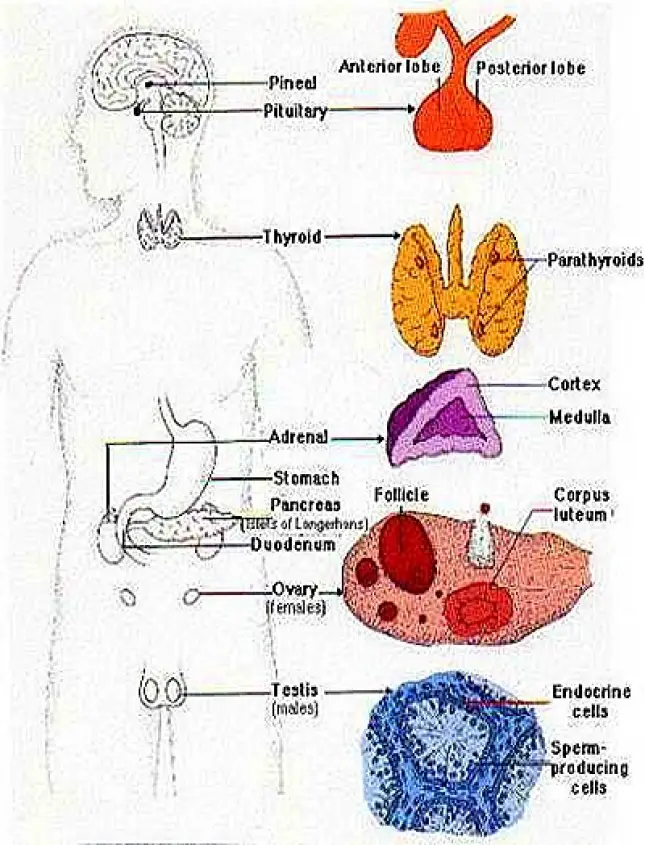Medically reviewed and approved by a board-certified member

The glands are secretory in function. The glands are of two types, viz.,
- exocrine and
- endocrine glands.
The secretions of endocrine glands are called "hormones". The hormones do not pass through ducts, hence the glands are also called "ductless glands". But hormones are distributed to the various organs through the blood. Hence such glands are termed as "endocrine glands" [endo-internal; crinin-secretion].
The various systems are co-ordinated by nervous and endocrine systems. These two systems together called "integrated system". The endocrine system can not influence the organs rapidly as the nervous system does.
The term hormone was proposed by "Bayliss" and "Starling". Hormones are biocatalysts, which are required in small amounts. These do not participate in biochemical reactions. Hence hormones are aslo called "automones" or "autocoids". These are secreted in organs, but their action is else where i.e normally other than the endocrine glands. For example, the follicle stimulating hormone of pituitary acts on gonads. The hormones carry informations or messages to the "target organs" [target organ = organ which is subjected to the action of hormone].
Hormones regulate a variety of physiological activities, like growth, reproduction, temperature, sexual dimorphism etc. Hormones mainly maintain the internal environment or "homeostasis" by messages. Hence hormones are also called "informational molecules" or "chemical messengers".
End of the article